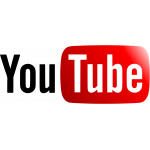How to design a wiki page
What is a Wiki Page
A wiki page is a web page whose content can be edited by multiple users. It is based on the principle of collaborative editing, allowing the creation of interactive guides, instructions, and encyclopedic materials.
Main Features of Wiki Pages
- The ability to edit and update information multiple times
- Content organization using headings, lists, and tables
- Internal links to other pages for easy navigation
- Change history and the ability to restore previous versions
Understanding these principles is important to ensure the wiki page is structured and useful for users.
Preparation for Creating a Wiki Page
Before starting the formatting, you need to prepare several elements:
Page Topic
Clearly define what your wiki page will be about. This helps organize the material and avoid chaos.
Information Gathering
Prepare all data, links, images, and examples you plan to include.
Structure Definition
Decide which sections and subsections will be on the page so that the material is logical and easy to understand.
This preparation allows you to work in an organized way from the start and reduces time spent on corrections.
Wiki Page Structure
A proper structure ensures convenience and readability. Key elements include:
Headings and Subheadings
Use a hierarchy of headings: H2 — main sections, H3 — subsections, H4 — additional details. This helps users quickly find the information they need and improves SEO.
Introduction
At the beginning of the page, provide a brief description of the topic. The introduction should explain the purpose of the page and give the user an overview of the content.
Main Content
The main text should be divided into paragraphs and use lists and tables. It is important that the information is logically structured and easy to perceive.
Links and Internal Navigation
Links to other wiki pages or external sources make the material more informative. They also help users find related information and increase time spent on the site.
Images and Multimedia
Illustrations, diagrams, and videos make the page visually appealing. All images should be optimized in size and include alternative text for SEO.
Text Formatting Rules
- Use short and clear sentences
- Divide text into paragraphs of 3–5 lines
- Include keywords in headings and text without overstuffing
- Use bulleted and numbered lists for enumerations
- Add subheadings to structure long sections
Following these rules makes the text accessible and attractive to both readers and search engines.
Navigation and User-Friendliness Tips
- Include a table of contents with links to sections of the page
- Use anchors for quick navigation to key points
- Check all links and make sure they work correctly
- Add internal links to related pages to improve SEO
These techniques help visitors easily navigate and increase the value of the wiki page.
SEO Optimization for a Wiki Page
- Include keywords in headings, subheadings, and main text
- Add descriptions for images and multimedia
- Add meta tags and correct URLs
- Ensure fast page response and proper display on mobile devices
Proper SEO optimization increases organic traffic and makes the page accessible to a wide audience.
Conclusion
Formatting a wiki page is a comprehensive process that requires preparation, a well-thought-out structure, and proper presentation of information. For beginners, it is important to:
- Define the topic and gather materials
- Develop a logical structure with headings and subheadings
- Use lists, tables, and multimedia for clarity
- Add links and optimize text for SEO
- Regularly update the page and check links
Following these recommendations, even a beginner can create a quality wiki page that is user-friendly and effective for promotion.
Wiki pages are a tool that allows you to systematize knowledge, make it accessible to a wide audience, and improve the site's position in search results. Proper formatting and regular content updates make your page useful and in demand.
Our Services for Streamers
Our Services for Content Creators











